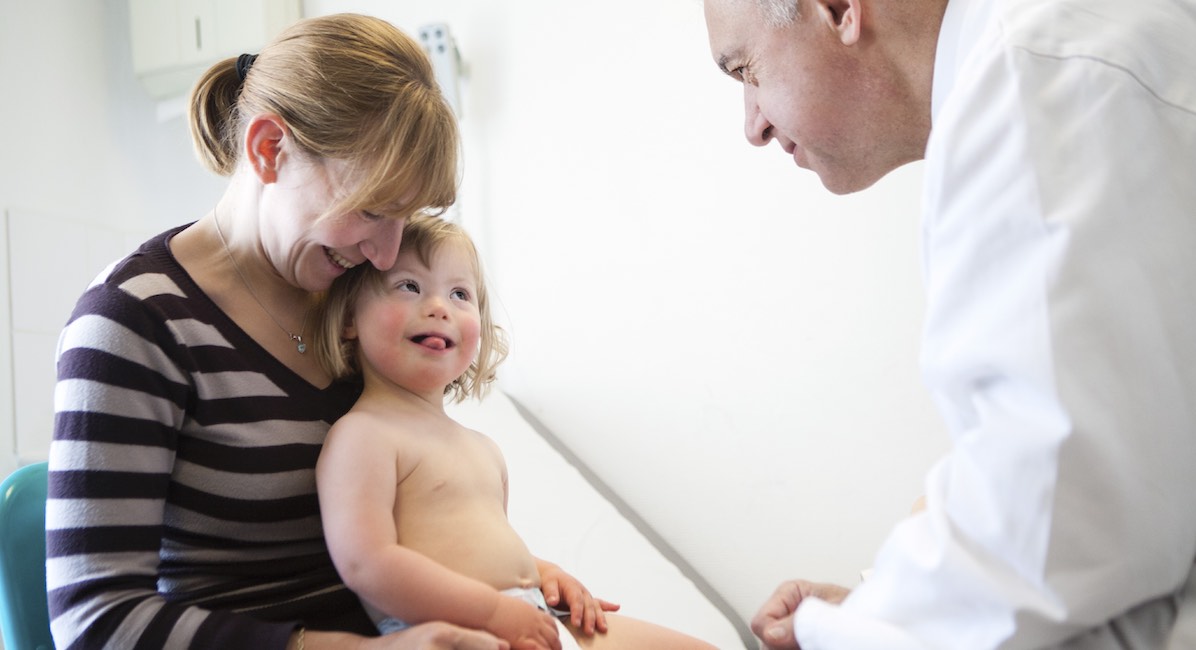Mothers have spoken out about the immense pressure they faced to have abortions in a series of interviews with the BBC. The stories bring even more attention to the United Kingdom’s controversial abortion laws, which permit abortion at any time in pregnancy if the child is diagnosed with a disability.
“We were offered 15 terminations”
Emma Mellor and her husband Steve already had a child when they got pregnant for the second time, when Mellor was 24 years old. At 20 weeks pregnant, doctors discovered fluid on her daughter’s brain, and from then on, the pressure to have an abortion was constant. Their son, Logan, had a hole in his heart, and was on the waiting list to receive surgery. Mellor said the idea of administering an injection to stop her daughter’s heart, while they raced to fix their son’s, was unimaginable.
“In all honesty we were offered 15 terminations, even though we made it really clear that it wasn’t an option for us, but they really seemed to push and really seemed to want us to terminate,” she said, adding, “From that moment on, they recommended we should terminate and told us to think about the effect on our son and his quality of life.”
By 32 weeks, Mellor’s daughter had been diagnosed with Down syndrome, and doctors told her an abortion could be committed up until birth. “At 38 weeks, the doctors made it really, really, really clear that if I changed my mind on the morning of the induction to let them know, because it wasn’t too late,” she said. “I was told that until my baby had started travelling down the birth canal, I could still terminate.”
Today, Mellor’s daughter, Jaimie, is healthy and happy. She and big brother Logan are best friends, proving that a sibling with Down syndrome does not diminish someone’s quality of life.
READ: Mom pressured to abort baby with Down syndrome: My daughter was ‘completely dehumanized’
No support unless you abort
Lorraine Buckmaster was advised to undergo prenatal screening because of her age, and a blood test indicated that her son, Jaxon, might have Down syndrome. “I was 45 at the time and knew there would be a higher chance, but it didn’t matter to me,” she said. “The midwife said we would get longer to see Jaxon on the screen so we went along with it.” The midwife, after learning of the increased risk of Down syndrome, recommended an amniocentesis. Buckmaster refused, and the midwife was furious.
“I said no, we wouldn’t be interested, partly because we had lost a baby the previous year,” she said. “She was very aggressive and said ‘women like you make me sick. Why bother having a screening at all if you’re not going to do anything about it?'” Prenatal screenings can and should be used as pro-life tools to improve health care outcomes and prepare for the safest birth possible for a potentially medically fragile child. But too often, as Buckmaster’s midwife demonstrated, testing is used instead as a way to weed out those deemed as “unwanted” or “undesirable” through abortion.
A midwife called Buckmaster later, apologizing for delivering “really bad news,” which was that Jaxon had a 1 in 5 chance of having Down syndrome. Buckmaster, along with her husband Mark, refused all further testing. “The support was only there if I chose to have an abortion, and that was what they presumed, but they weren’t interested when I said I wanted to keep Jaxon,” she said.
Jaxon’s Down syndrome diagnosis was confirmed at birth, and he is now a much-beloved member of the Buckmaster family. “It takes him longer to reach milestones, but we celebrate them so much more because they are such an achievement for him,” Buckmaster said.
Deadly discrimination
People with disabilities, including Down syndrome self-advocates, have been campaigning to have the United Kingdom’s discriminatory abortion law overturned. “The current law is unfair. It makes me feel like I shouldn’t exist, and that I’d be better off dead in the eyes of the law,” Heidi Crowter, a young woman with Down syndrome, recently said. “The policy basically says that it’s normal for a baby with Down’s syndrome to be terminated right up until birth. The reason why this is important to me is because I have Down’s syndrome, I know what it is to have it, and my husband has it.”
A judicial review to change the discriminatory law has been approved and will soon be heard by the High Court, where the government will hopefully realize that all people — including people with disabilities — have the right to life.
“Like” Live Action News on Facebook for more pro-life news and commentary!







